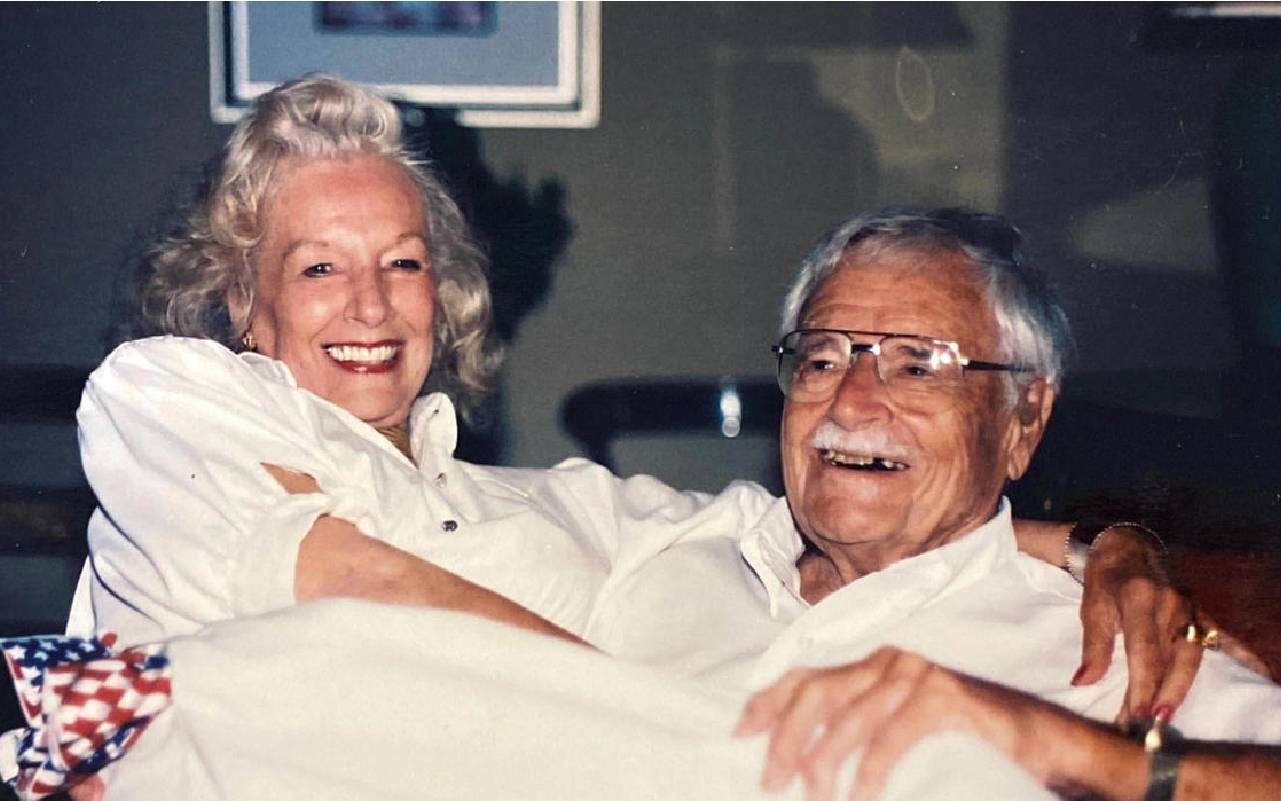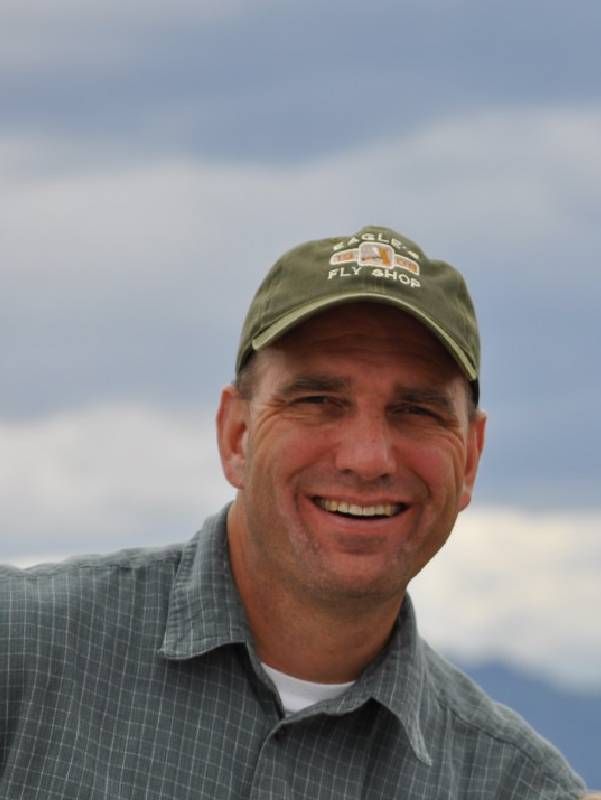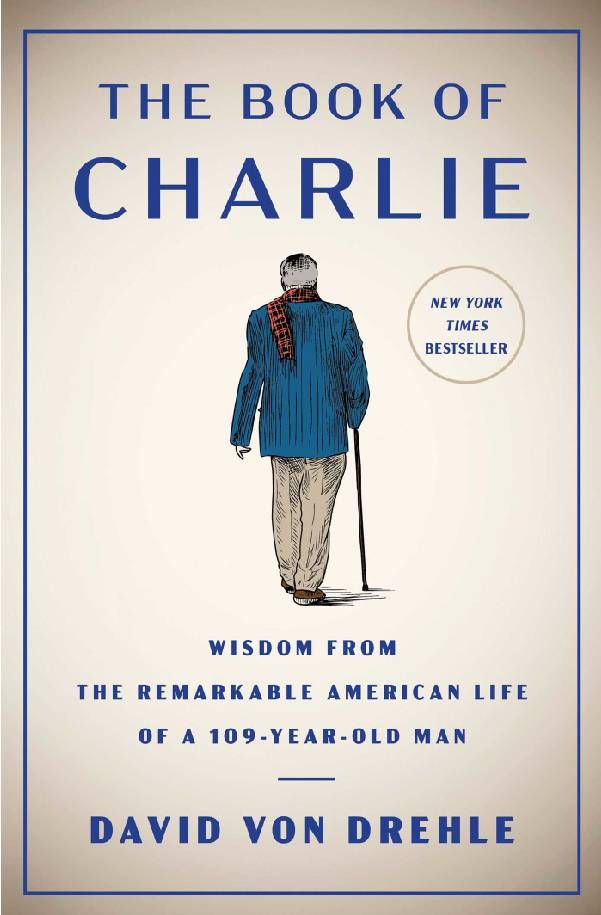Life Lessons From a 109-Year-Old Man
The bestselling ‘Book of Charlie’ author shares his late Kansas City neighbor’s ‘operating code for a happy life’
Sometimes, wonderful lessons for growing older are right under our nose. Or, as in the case of "The Book of Charlie" author and Washington Post columnist David Von Drehle, across the street.

In 2007, soon after he and his family moved from Washington, D.C., to Kansas City, Von Drehle struck up a friendship with his chipper neighbor, retired anesthesiologist Dr. Charlie White, then 102.
"That underlined a lesson for me that I learned from my mother: We need to keep making friends in life because we might be among the genetically lucky who are fated to have long lives and if we don't keep making friends, we're going to find ourselves alone," Von Drehle told me.
The Life of a 'Great Raconteur'
That seven-year friendship with the man Von Drehle calls "a great raconteur" planted the seeds for his new bestseller about the life, times and wisdom of Charlie White.
"I began to think about my children setting off into the 21st century — so much uncertainty and a lot of anxiety about what the future holds," said Von Drehle. "And I realized that here was a person who could be an example of how to deal with change because he'd lived the whole 20th century."
"Charlie was born in the age of horse and buggies and lived to see people on the International Space Station."
And what changes White experienced from his birth in 1905 until the day he died on his 109th birthday in 2014.
"Charlie was born in the age of horse and buggies and lived to see people on the International Space Station. He was born before radio and lived to own an iPhone. He was born before penicillin and lived to see robotic surgery," said Von Drehle. "This was a guy who understood change, who understood disruption."
A 'Surfer on a Sea of Change'
As Von Drehle writes, White survived the Depression, two world wars and two pandemics (1918 and 2020–2023). He had three marriages and a great love affair at the end of his life. The author calls the physician "a true surfer on a sea of change."
Before turning White's life into a book, Von Drehle said to himself that his neighbor could be a person to help his four kids in their 20s "understand how to deal with change and thrive no matter how long you live." That's a key reason he wrote "The Book of Charlie."
To better understand how White lived his long life and the rules he lived by, Von Drehle listened to recordings the physician made with an oral historian from the group Voices in Time and interviewed his family members, friends and colleagues.
Readers learn ways White's positive attitude can teach those of us in the second half of life how to make the most of it — and when, as Idina Menzel famously sang, we should just "let it go."
Charlie White's Philosophy: Stoicism
Though he never studied philosophy, White strongly believed in stoicism, which says: focus on what you can control, don't fret about what you can't. Von Drehle thinks this credo, popularized by Socrates, Seneca and Marcus Aurelius, is worth emulating.
"Stoicism has a bad rap," said Von Drehle. "People think it means unfeeling, emotionless, repressed. But that's all wrong. It's a great liberating philosophy. If we keep our focus on the things we actually have in our power, and let go of all the rest, we can live lives with contentment, purpose and usefulness. Charlie really embodied that for me."
White developed and maintained his stoicism even when life took sad, fitful turns.

His father died at 42 in a freak elevator accident when Charlie was eight. White graduated from medical school just in time for the Great Depression and opened a medical practice when few patients could afford to pay him.
"Despite the grief and sorrow, he found this ability inside himself to keep putting one foot in front of the other and to find happiness again, and purpose," said Von Drehle.
The closest White came to expressing regret, said Von Drehle, was when his first wife died by suicide at an early age.
"I think if he had any regret, it was that he didn't find a way to help her out of her own misery. But he tried. He took advantage of all the therapeutical options that were available in the 1930s and 40s, which were few. But that left a certain sadness that never went away," Von Drehle noted.
Becoming His Best Advocate
Often, when life dealt him a bad hand, White became his own best advocate.
"Charlie was all about chutzpah," said Von Drehle. "When he was rejected from Northwestern's medical school, he got on a train and went to Chicago, found his way to the dean's office and said he wasn't going to leave until he had a chance to make his case."
He got in.
Von Drehle thinks White's go-getter nature is something parents might want to instill in their children.
"Putting yourself out there is scary, but those are where the big breakthroughs come — when you show that you are willing to take those risks in pursuit of your own future," he said.
White's adaptability to change and what Von Drehle calls his methods of making "an art of living" teach the power of resilience.
The Power of Resilience
A general practitioner in the 1920s and '30s, White initially had been one of the many doctors "carrying their tools around in a leather bag from house to house dispensing wisdom and taking out tonsils on dining room tables," said Von Drehle.
But a whirlwind of medical innovation during World War II radically changed the profession. That's why White signed up for a three-month course in anesthesiology at the Mayo Clinic in Rochester, Minnesota, in 1943.
"When he came back to Kansas City after the war, instead of being obsolete, he was the first anesthesiologist in Kansas City and became far more successful than he had ever been," said Von Drehle. "That's an example of embracing change. He wasn't threatened by it. He was delighted by it."
A Horse Tank for Heart Surgery
In the 1950s, when no one in Kansas City had performed open heart surgery, White came up with an ingenious idea. He'd read that lowering the body temperature could prevent bleeding to death. So, he brought to the hospital a tank used to supply horses with water and buried a heart patient in ice.
"He was still going to meetings of doctors and on grand rounds at the hospital well past 105."
"Is that the solution to the future of heart surgery? No, but it's one step forward," said Von Drehle. "That's the way we really make change and innovation — to not wait for the whole answer, but to do the next best thing."
White treated more than 40,000 patients during his career, retiring from his practice at 70 in 1975, but that didn't mean giving up medicine. At 99, White went on a missionary trip to Haiti, but was rejected for another one at 103 due to his age.
"He was still going to meetings of doctors and on grand rounds at the hospital well past 105," said Von Drehle. "He never stopped learning."
A lifelong golfer, White had to stop playing at 102 because of balance problems. "He was super frustrated," said Von Drehle.
Keep Your Daubers Up!
One of White's favorite pieces of advice: Keep your daubers up!
Von Drehle's translation: Don't let the world get you down; keep going, hang in there. Tomorrow's going to be better, or if it's not better, you're still going to be enough of a match for it.
"That's very much the spirit of Charlie at his essence," said Von Drehle.
Near the end of his life, while living in an assisted living facility, White distilled on a sheet of notepaper what Von Drehle called "the operating code for a happy life."
They included: Think freely. Practice patience. Smile often. Savor special moments. Feel deeply. Observe miracles. Make them happen. Be soft sometimes. Cry when you need to. Make some mistakes. Learn from them. Work hard. Spread joy. Take a chance. Enjoy wonder.

Living Life Like Charlie Did
Von Drehle has distilled them even further to mean: Be in the present moment and make the most of it with kindness, concern for other people and integrity.
After learning stoicism from Charlie White, Von Drehle now tries to live that way.
"We're constantly thinking: 'Why did she say that? These darn bureaucrats! I'm always in the slow grocery line!' All these things that we let get us down," said Von Drehle. "Charlie exuded this idea of using the time we have squeezing the juice out of every day, and he made it very attractive. It was something I wanted to lean into."
So, I asked: "You don't get so upset when you're in the slow grocery line anymore?"
Said Von Drehle: "No. It's just a good chance to catch up on People magazine."


